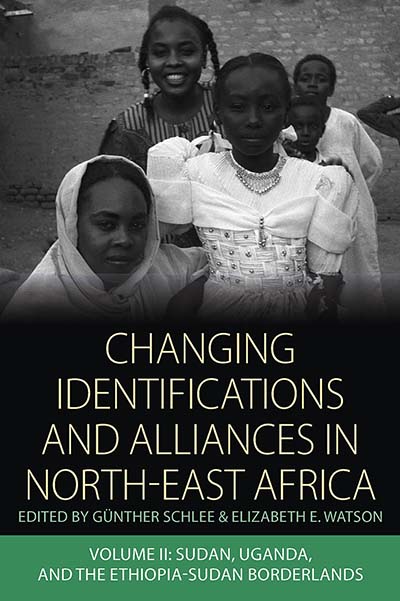Günther Schlee traces old steps and tracks steps forward since the original publication of Changing Identifications and Alliances in North-East Africa, Volume 1 and Volume 2. The paperback versions were published in October. Following, Schlee rounds out the two-part interview with a reflection on the book’s release, and where he is proceeding within the field.
The first half of this interview is available here.
_____________________________________________________

Berghahn Books: To what extent did the initial release of the book contribute to debates among current and future academics within the field?
Günther Schlee: People use these two books as an introduction to the region. But it has also been taken up by people who have little to do with Africa. They have taken an interest in the theoretical issues we make.
A recent review in Ethnos, for example, explores in which way our approach contributes to Rational Choice Theory (Boskovic, Aleksandar, and Suzana Ignjatovic 2012. Understanding ethnic conflicts through rational choice: a review article. Ethnos 77[2]: 289–295). These two volumes present a theoretical perspective on a still fairly recent history of the region.
BB: What is one particular area of interest or question, that wasn’t necessarily the focus of much attention, which you feel became especially pertinent to your field since you published the initial volume?
GS: Well, history moves on. The Sudan has split into two countries. Oil, which was a bone of contention even in the period in which the contributions to these volumes were written, has started to flow, oil revenues have changed peoples lives and continue to be a contested resource, land grabbing has acquired new dimensions….
We have written about oil in Africa elsewhere (Behrends, Andrea, Stephen Reyna & Günther Schlee (eds.), Crude Domination, Berghahn Books 2011) and we are also working on land grabbing and contested land rights (Schlee in Nomadic Peoples 17/2 “Why States Still Destroy Pastoralism and How They Can Learn That in Their Own Interest They Should Not” (position paper) and Pastoralism & Politics in Northern Kenya and Southern Ethiopia (together with Abdullahi A. Shongolo, James Currey 2012.)
But it cannot be our ambition to be up-to-date in all recent changes. We have to leave that to the journalists. Academic books – especially collected volumes which are based on workshops, meetings, correspondence, i.e. long discussions within a group of authors and editors and then still go through an external reviewing process – can never be the source of the most recent information. Our ambition was to identify some basic patterns of changing identifications and alliances, to identify the forces which make them change, and to develop a theoretical approach which is helpful to understand many things which are not described in these volumes – because they are not within the same time frame or regional frame.
I think we have achieved that. Everyone is welcome to apply our perspectives (affirmatively or critically) to new data as they come up every day.
______________________________________
Günther Schlee is currently the director of the Department of Integration and Conflict at the Max Planck Institute for Social Anthropology. His publications include Identities on the Move: Clanship and Pastoralism in Northern Kenya (International African Institute, 1989), How Enemies are Made (Berghahn, 2008), Rendille Proverbs in their Social and Legal Context (with Karaba Sahado) and Boran Proverbs in their Cultural Context (with Abdullahi Shongolo) (both Cologne: Rüdiger Köppe).
Elizabeth E. Watson is a Lecturer in the Department of Geography at the University of Cambridge. Recent publications include: ‘Local Community, Legitimacy, and Cultural Authenticity in Postconflict Natural Resource Management: Ethiopia and Mozambique’ in Environment and Planning D: Society and Space, 2006 (with R. Black), and ‘Making a Living in the Post-Socialist Periphery: Konso, Ethiopia’ in Africa, 2006.
Volumes 2 & 3 of Integration and Conflict Studies
